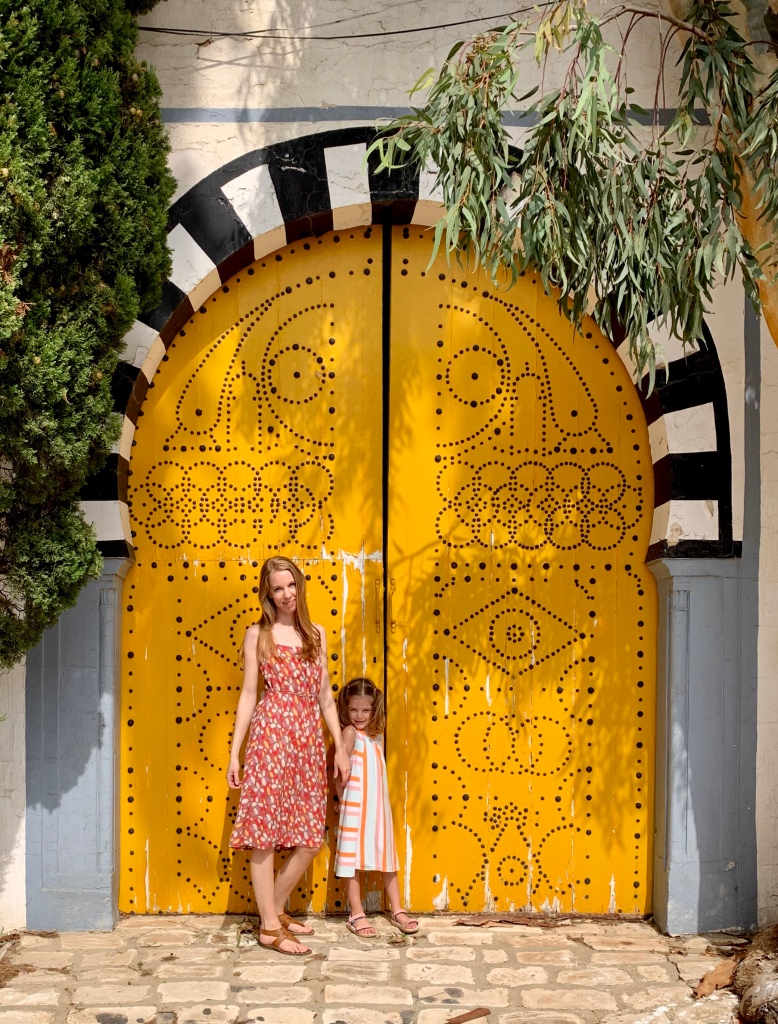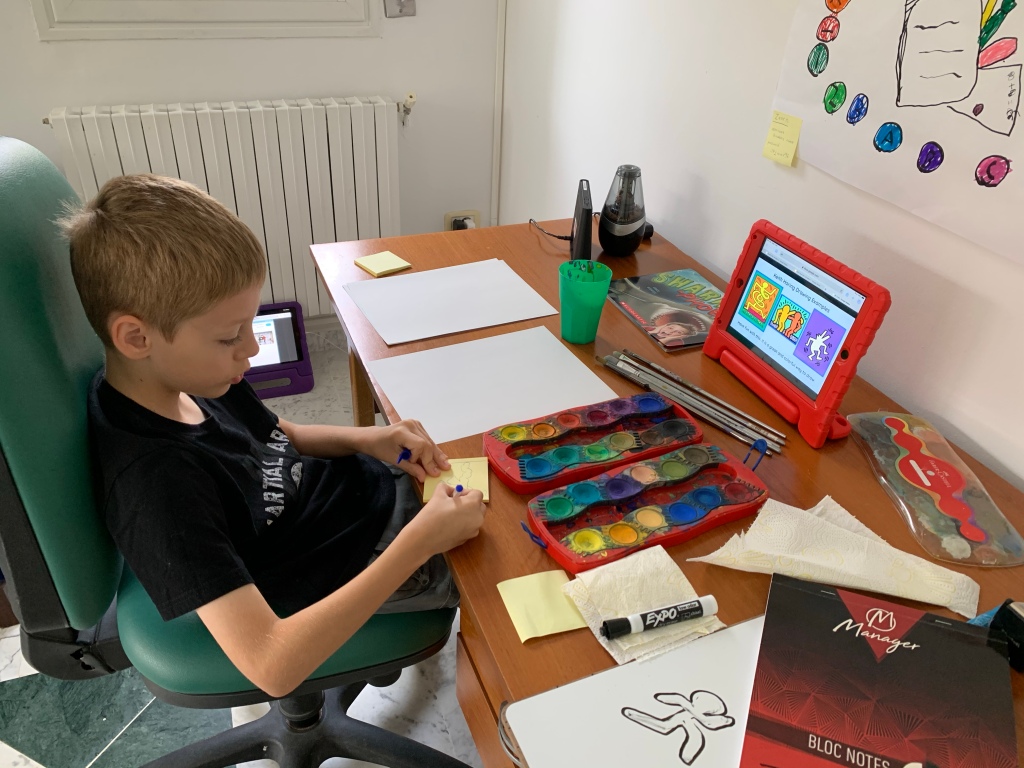I was warned multiple times before moving overseas that I would succumb to something called “culture shock.” It sounded very dramatic and unpleasant. I saw the roller coaster-looking line graph. I studied the “symptoms” and “coping strategies.” I tried to prepare myself mentally and emotionally.

Well, I’m happy to report that after about 2 months in Tunisia, this “culture shock thing” isn’t as bad as it sounds (at least in my experience). I really think it needs a new name and a new graph. Maybe “culture adjustment” or “culture curve” or “sometimes life sucks no matter where you are, but right now it happens to suck in a new country.”
If you aren’t familiar with the concept of culture shock, here it is in a nutshell: Honeymoon, Frustration, Adjustment, Acceptance
You go somewhere new and have a “honeymoon” period where everything is new and exciting. This is followed by hostility and irritability. You are frustrated with the differences you experience such as language barriers, different ways of thinking, new foods, and just feel a general longing for home. Eventually, you adjust to the new culture and gain knowledge and tools to help you live in this new world. And finally you adapt. Life feels basically normal. But… that’s not really the end… When you return to your home country, you get to experience all of these stages again with reverse-culture shock. Fun times!

But like I was saying, the word “shock” feels a little hyperbolic, and in my personal experience it hasn’t been a continual path forward on the “roller coaster chart.” I have definitely moved backwards on that line graph, sometimes gradually and sometimes like I fell off a cliff. (Oops, now who’s being dramatic?)
The “symptoms” can be confusing. Mood swings. Loneliness. Irritation. Feeling critical. Lack of confidence…. Umm, pretty sure that just describes my past year and I definitely hadn’t left the US at that point… None of these things seem that unusual.
I was talking with my husband, Justin, about this and he had the perfect revision for the culture shock graph. It’s not a line. It’s a circle. Brilliant! You see, for me, I feel like I’ve just been going round and round between good periods and bad periods, but it always seems to cycle back around.

Here’s how I’ve experienced a change in culture:
The highs are high! Sometimes, I feel like I’m on top of the world here. I am so lucky. This place is gorgeous and fun and interesting. I’m at the beach one weekend and the Roman ruins on the next. Am I on vacation or is this my real life? And being “fake rich” is the BEST! I’m not actually rich. I don’t own this amazing house, but I get to pretend that I do. And because the school is paying the bills, I have extra money. Then if you account for the very cheap cost of living in Tunisia, it all adds up to a pretty cushy lifestyle.

But other times, it does not feel like a fairy tale. I miss my friends and family. I get irritated with myself that I am not brave enough to hop in the car and go to a store on my own. I love feeling independent and confident and I certainly don’t feel like I possess either of those qualities here. I’m snapping at my kids because I’ve just made them their 3rd breakfast and they still haven’t eaten because they don’t like any of this food. I try to video chat with people back home and between crappy internet and lag time, I feel more disconnected from them than I did before I called. Sometimes I feel helpless and stupid when I can’t communicate with people speaking a different language and I have to rely so heavily on others to do very simple things.

These highs and lows come and go sometimes within a matter of minutes, but other times I can feel the stress or longing gradually building up and I know I’m on a downhill slope. And this up and down thing has happened over and over again like a circle going round and round. Perfect example: Sometimes the traffic here stresses me out and sometimes it makes me laugh. Just depends on the day.
But again, how is this drastically different from the highs and lows I experienced before I moved? On a particularly hard day here, Justin asked, “If you were back in Eudora right now, do you think you would be happier?” And my answer was no.
I moved to Tunisia for a reason. I’m pretty sure I’d be miserable if I was still teaching at the same place, doing the same things every day. I knew last year that I had to throw a wrench in my life in order to move forward in a healthier, happier way. I remember someone telling me the thought of moving to a new country sounded scary, but for me, the thought of staying was scarier. I was apathetic, burnt out, frustrated, and sad during my last year in Kansas. I’ll take these “culture shock” lows over that any day. And the bonus is that it comes with the really high “highs” in between.
So, I’ve been around the circle a few times (or more), and I know my triggers. During “quarantine periods” where we are more isolated, I tend to feel more sad. I always do better when we have activities planned. I don’t like sitting at home. Stressful work situations (like switching to distance learning) can also trigger a downward plunge. (Sounds like my issues are Covid related and not Tunisia related…)

I think along with the honeymoon/frustration cycle, I’ve been moving forward along the chart as well, getting more accustomed to life here. (Oh boy, the chart just got another new revision!) I am not as “shocked” by things I see and hear anymore. I feel more and more comfortable with every passing week. The little successes (bought a lamp today and had sushi delivered to our house!), growing friendships and comfort with work routines make me feel like I’m quickly approaching the “acceptance” phase. I’ve done a lot of adapting and adjusting to this new life and I feel like I’m in this sweet spot at the moment. I do not take this life for granted. I still feel very lucky to be here, but at the same time I’m not quite as wide-eyed and amazed as I was when we first arrived in Tunisia. I’d say 85% of the time I feel comfortable and living here feels “normal.”

Emotional ups and downs happen everywhere. Culture shock just encompasses very specific ups and downs because there are specific challenges that come with adapting to a new culture. I’m sure lots of people could relate to these phases with a new job, new baby, new relationship, new house or city. Honeymoon, Frustration, Adjustment, Acceptance. I think we’ve all felt those with some change in our lives. I’m still dealing with emotions in the same way. I’ve just swapped my Kansas problems for some new, exotic problems and my issues now have fancy charts.
To sum it all up, culture shock sounds scarier than it actually is. I’m getting used to my new life here and most of the time it feels great, but don’t be fooled! Nothing is perfect. The picturesque photographs don’t capture the behind the scenes details. There have been ups and downs and I miss my friends and family terribly, but adjusting to life in Tunisia has been well worth it, culture shock and all.

Really enjoyed these thoughts, they actually give me some context for life changes I’ve been through the last few years. But like you I am definitely in a better place and better for the experience, for sure.
LikeLiked by 1 person
Some have used the form of… Order, Disorder, Reorder, as a standard rhythm of life. Everyone is working through this on some level. It sounds compatible. In the pit of disorder having hope that reorder will come is one take away for me.
LikeLiked by 1 person